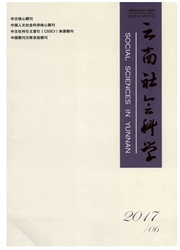

 中文摘要:
中文摘要:
清水江流域是中国苗族、侗族等少数民族的重要聚居区之一,宗族组织在地方社会中发挥了很强的组织、协调作用,宗族活动渗透于清水江流域民间社会生活的各个方面,明清以降遗存下的清水江文书就是例证。本文拟以高酿镇地良村文书为例,梳理文书中父子、兄弟、女性等人名的书写程式,分析事主宗族性身份和宗族门房支派层级关系的表达方式,进而探讨宗族在家庭内部、宗族内部、不同宗族之间契约签订中的渗透度,以期了解宗族在维持家庭延续性和宗族凝聚力中的实际运作模式。
 英文摘要:
英文摘要:
The Qingshui River Basin is one of the important habitation areas of the Miao, the Dong and some other minorities in China. Patriarchal clans play an important organization and coordination role in the local soci-ety, and their activities are penetrated into every aspect of the civil society, which are demonstrated in the Qing-shuijiang documents inherited since the Ming and the Qing Dynasties. By sorting the writing styles of the names of the father and son, brothers, women, etc, and analyzing the expression modes for the identity of the people concerned and hierarchical relationship of the sub - branches of the clan, the present paper investigates the per-meability of the patriarchal clan in the contract signed within a family, within a patriarchal clan and between the patriarchal clans, which has helped the writers of this paper explore the real function of the patriarchal clan in supporting the continuity of a family and strengthening the cohesion of a patriarchal clan.
 同期刊论文项目
同期刊论文项目
 同项目期刊论文
同项目期刊论文
 期刊信息
期刊信息
